Natural Stone for sale
Home » Natural Stone for sale
Stone block & Stone Slab & Stone tile
In today’s world, Stones are utilized and visible in nearly every conceivable space. Stones and stone products encompass our living environments, with one of their most prevalent applications being the field of construction. It means they have become fundamental parts of a building, playing a pivotal role in the aesthetics, strength, and durability of building stones. In this article, we will introduce various types of building stones and their diverse applications for construction and personal use.
Supplying Of Stones
In the stone industry, natural stone is always processed and supplied through various methods, depending on the use and type of stone. That’s good news for our customers because our delivery teams can process and package products in different forms according to their requests. In the following, we will be discussing the process of supplying stone products in distinct methods.
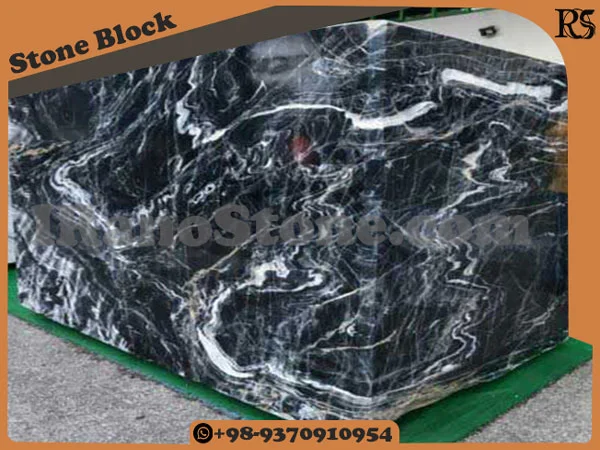
1-Stone Block
In simple terms, natural stone that is extracted from a deep quarry through the mountains cutting machine in the form of a rectangular cube is called a stone block or quarry stone. After being extracted and shaped, the stones are fragmented into smaller pieces technically using various tools, including chain saws and stone cutting machines. Then, they are transported to factories where stones are processed. Stone blocks can be made from different types of stone, including granite, marble, and travertine.
One of the important roles of stone processing factories is to supply and categorize stone blocks based on their excellent quality, dimensions, and characteristics carried out in a standardized way in Iran. Depending on the type and characteristics of each stone, different tools and methods are used to cut them.
It is important to note that the crushing of large blocks of stone takes place in three main types.
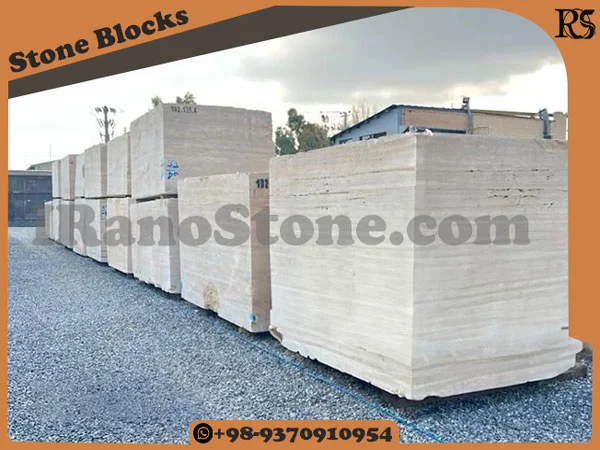
Types of stone block
Single stone block
Single block Stones with a special reputation are recognized as top-tier products and are larger than other ones. These stones possess suitable characteristics that make them one of the best choices for producing standard and high-quality slabs.
Single block stone characteristics:
- High quality
- Variety and harmony in colors
- Absence of cracks
- Large and suitable dimensions
Single blocks are cut into hexagonal shapes and extracted from the quarry with a weight of over 20 tons, then transported with a trailer. However, the weight of the block also depends on the market and the type of stone. For example, even marble stones weighing 500 kilograms are considered blocks.
Single blocks are always more valuable, and the more uniform the stone blocks, the more attractive they are to stone processing factories.
Double-Blocks Stones
Double-block stones are smaller in size compared to single blocks. They are created by splitting a single block of stone and are commonly shaped like rectangular cubes, although they may not have uniform shapes.
Triple-Blocks Stones
Each triple-block or three-block stone has a third of the weight of a Single stone block. These stones have much less weight in comparison to single and double-block stones. Triple-block stones fall into the category of third-grade products.
Aggregates or Crushed Stones
In addition to these three categories, other finer stones are known as “aggregates or crushed stones“. Aggregates naturally don’t have a specific geometric shape and are used for various purposes without any need for cutting. Construction projects frequently use them as a substitute for cement and blocks. Due to their high durability, heavyweight, and economic feasibility, they are very suitable for road construction and building applications.
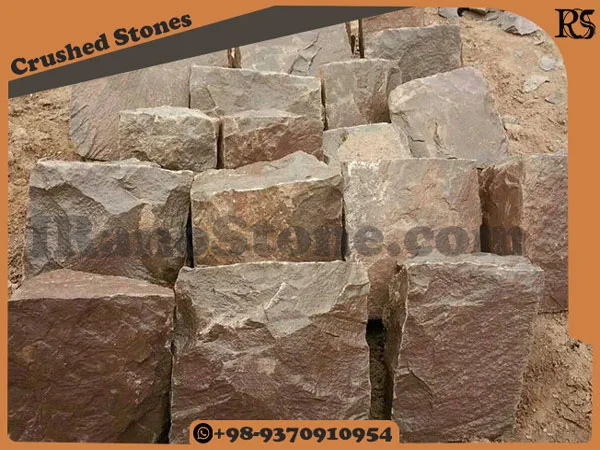
2-Stone slab
slabs or pieces of natural rock with thin and sheet-like characteristics, having a width of more than 70 centimeters, are known as stone slabs. After extraction from mines, they are cut into large-sized sheets then brushed, polished, or honed, and prepared for sale. This type of stone includes various varieties such as marble, granite, sandstone, limestone, quartzite, Travertine, and onyx.
Advantages of Using Stone Slab
- Greater Strength Compared to Tile: stone slabs have a much higher level of durability when compared to typical tiles.
- Possibility of Illumination: The surface of these stones is smooth and shiny, which is Illuminated with LDE as in Onyx stone and accentuates design details.
- Easier Transportation: Due to their smaller dimensions and lighter weight compared to stone blocks, transporting stone slabs is easier.
- Reduced Waste in Cutting Process: During the production process of stone slabs, the amount of waste is reduced.
- Exceptional Beauty and Attractiveness: These stones possess unmatched beauty with their mesmerizing appearance designs.
Disadvantages of Using Stone Slab
However, it’s important to consider the disadvantages of using stone slabs. In some aspects, using stone slabs may be more challenging and expensive compared to tiles. Additionally, due to the higher production costs, these stones sometimes draw attention to alternative options such as ceramics. Nevertheless, most experts and industry professionals believe that the beauty and natural value of stone slabs are incomparable to ceramics and tiles. That’s why stone slabs continue to be recognized as a superior option in the construction industry.
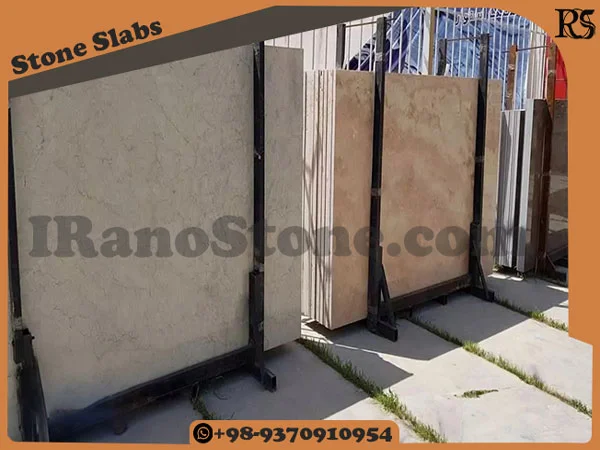
3-Stone tile
You may have heard the name “tile” and wondered what this type of stone looks like. Stone tiles are a ubiquitous building material utilized in the construction industry and are commonly found in a wide range of residential and commercial settings. They remain a popular choice for flooring, walls, and other surfaces in both new construction and renovation projects.
Cut and Make Stone Tile
If you’re looking to order stone tiles, you can choose your desired sizes and dimensions. However, typically these types of stones are available in dimensions of 40×40, 50×50, 60×60, and 80×80. The thickness of the tiles is usually 2 centimeters. Additionally, they are also available in other dimensions such as 60×30 and 80×40, which can be used in places where rectangular dimensions are required. Typically, stones with a thickness of over 3 centimeters are the ones that are used in European countries, Russia, Kuwait, Qatar, and Iraq.
Advantages of Using Tiles:
- Customizable in terms of dimensions and sizes
- Precise cutting in various thicknesses
- Versatile use in different parts of buildings
- Affordable and cost-effective
Difference between Tiles and Slabs:
Stone slabs usually have dimensions larger than 100×100 centimeters and a thickness of 2 centimeters or more. In contrast, stone tiles have smaller dimensions and more precise cuts in millimeters. The use of stone slabs is not possible in all parts of the building but is mainly used in large spaces such as hall floors, reception areas, stone walls, etc.
Stone Slabs are usually processed from higher-quality blocks. However, this does not mean that the quality of tiles is lower but they have a variety of sorts.
Due to their weight and large dimensions, stone slabs are transported using cranes and metal pallets, while tiles can be easily moved by hand and wooden pallets.
In addition to the above, the price of a stone slab is usually higher than that of a stone tile.
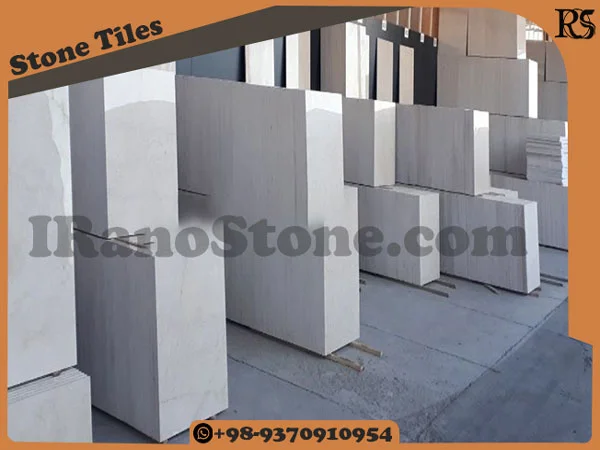
Markstony; Manufacturer of natural stone in the form of stone blocks, stone slabs, and stone tile
In this article, we have covered almost all aspects of stone processing, including definitions, characteristics, advantages, and disadvantages of each type. Additionally, in some sections, we have compared two types of stones with each other. By the end of this article, you have gathered comprehensive information about all these stones.
Markstony is a reliable company in the field of selling Iranian stones worldwide. In the Markstony collection, you can review and ultimately order all types of stones and stone products. Furthermore, with 24-hour support on this website, you can easily track the status of your orders and stone shipments anywhere in the world.
Finally, if you are seeking free consultation regarding Iranian building stones, please do not hesitate to contact us through the communication channels listed on our website. We are available at all times to assist with any inquiries you may have or to facilitate orders for Iranian stone products, regardless of your location in the world.
